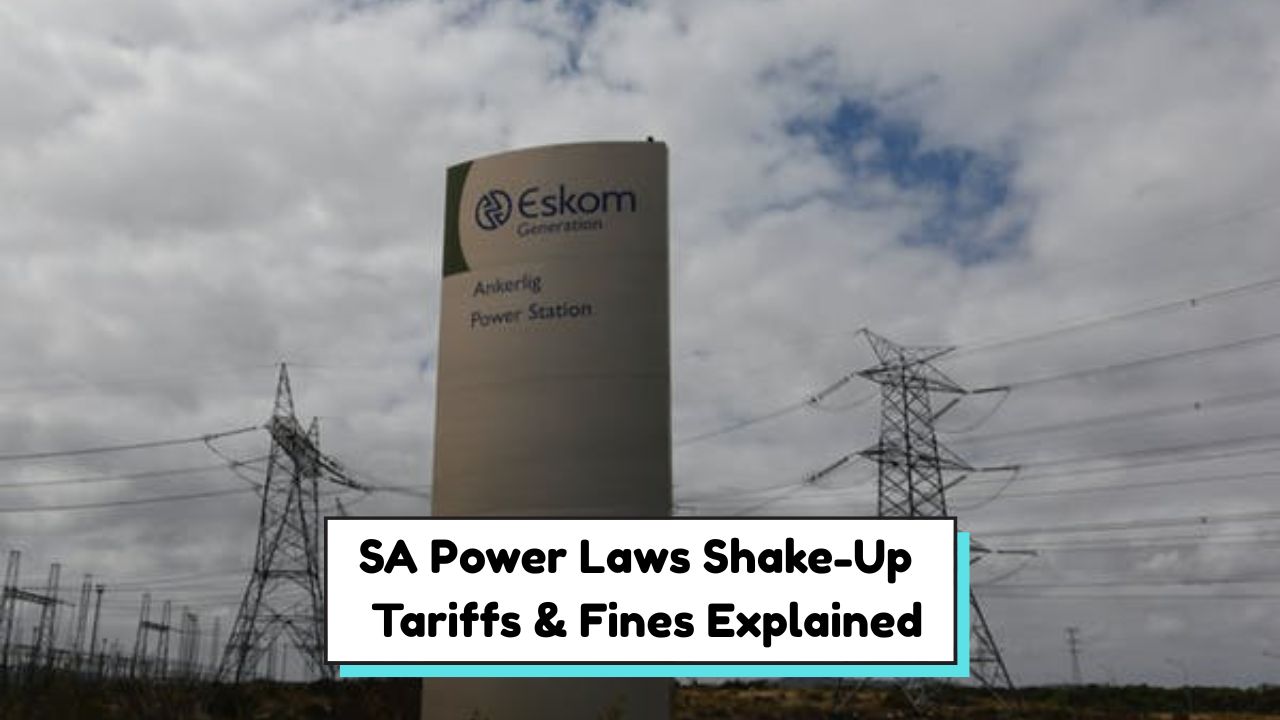
South Africa is entering a new phase of electricity regulation in 2025, with major law changes that directly affect consumers, businesses, and municipalities. These reforms have been introduced to ensure transparency, improve efficiency, and encourage sustainable energy practices in a country that has long struggled with electricity shortages and rising costs. Among the most important adjustments are new tariff updates, stricter compliance rules, and penalties for those who fail to follow the guidelines. The government has also emphasized the role of renewable energy and fair billing, with the aim of reducing reliance on unstable power generation and preventing corruption in the sector. For ordinary households, these changes will likely result in a clearer structure of payments, while industries will be expected to comply with energy-saving measures and regular reporting. While some consumers may initially be concerned about higher costs or complex compliance, the long-term benefits include stability, accountability, and improved access to electricity.
Tariff Updates and Consumer Impact
One of the most noticeable changes in the 2025 electricity laws is the revision of tariffs. The National Energy Regulator of South Africa (NERSA) has approved new structures designed to balance affordability with sustainability. Households may see a modest increase in monthly charges, but these adjustments are aimed at ensuring that power utilities can maintain infrastructure and reduce load-shedding incidents. Special attention has been given to low-income families, with subsidies and relief measures continuing for qualifying households. Businesses, on the other hand, are expected to shoulder slightly higher costs, especially those that are heavy consumers of electricity. This shift is intended to encourage energy efficiency and reduce wasteful usage. For consumers, understanding their bill breakdown will become easier under the new laws, as clarity in invoicing is now mandatory. The reforms also open doors for prepaid and smart metering options, giving individuals more control over consumption.
Compliance Rules for Industries and Municipalities
The new laws also introduce stricter compliance rules, especially for industries, municipalities, and service providers. Companies are now required to submit regular reports on electricity usage, efficiency measures, and alternative energy investments. Municipalities, which often serve as intermediaries between Eskom and end-users, face tighter audits to prevent billing irregularities and corruption. Non-compliance will attract heavy penalties, ranging from financial fines to suspension of operations. In addition, large-scale users are being urged to invest in renewable energy sources, such as solar and wind, to complement the national grid. These compliance measures are not just punitive but also encourage innovation and responsibility in the energy sector. For the average consumer, this translates into more reliable electricity supply, fewer interruptions, and a fairer distribution of costs across different user groups. Ultimately, the compliance framework is expected to reduce energy theft and strengthen accountability at all levels.
Penalties and Fines for Violations
To ensure adherence to the new rules, the 2025 electricity laws set out strict penalties and fines for individuals, companies, and municipalities that fail to comply. Illegal connections, meter tampering, and energy theft will now attract far harsher consequences, including higher fines and possible criminal charges. Municipalities that mismanage billing or fail to meet service delivery standards may also face government intervention. For businesses, non-compliance with efficiency and reporting standards could result in suspension of licenses or costly penalties. These tougher measures are designed to send a clear message that electricity is a national priority and cannot be misused. While the penalties may sound severe, they are balanced with support programs to help consumers transition into compliance. Educational campaigns, subsidies for renewable installations, and simplified billing systems are part of this effort, ensuring that South Africans are not only punished for violations but also supported in adapting to the new system.
Future Outlook and Consumer Benefits
Looking ahead, the electricity reforms of 2025 are expected to bring long-term stability and fairness to South Africa’s power sector. While consumers may initially face adjustments in tariffs and stricter compliance demands, the outcome is likely to be a more reliable supply of electricity with fewer load-shedding disruptions. The inclusion of renewable energy targets, support for low-income households, and tougher anti-theft measures reflect a more sustainable and consumer-friendly system. Over time, households will benefit from clearer bills, better customer service, and opportunities to save costs through smart meters and energy-efficient practices. Industries will also have incentives to innovate and reduce reliance on traditional grid supply. For the country as a whole, these reforms represent an important step toward energy security and economic growth. By embracing accountability, transparency, and renewable options, South Africa is setting the stage for a more resilient and equitable electricity system that will support its people and industries in the years to come.






